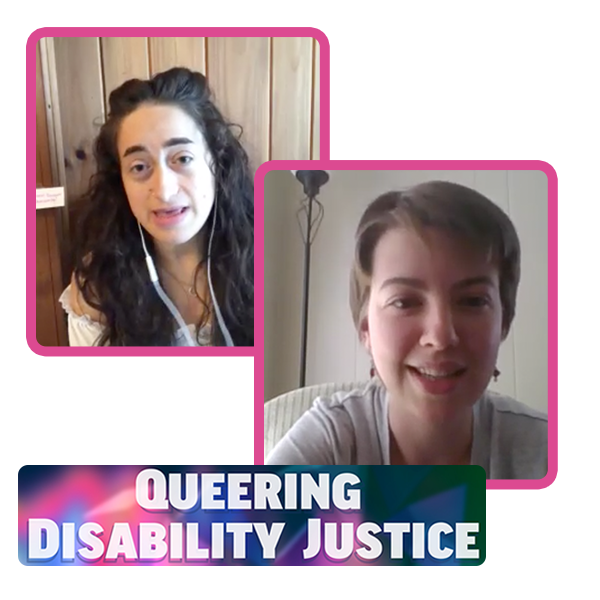 July 26, 2020 marked the 30th Anniversary of the Americans with Disabilities Act – and to honor the landmark anniversary, our team at the Campaign for Southern Equality is reflecting on the intersections of LGBTQ identity and disability in a series of video conversations with CSE staffers and community members.
July 26, 2020 marked the 30th Anniversary of the Americans with Disabilities Act – and to honor the landmark anniversary, our team at the Campaign for Southern Equality is reflecting on the intersections of LGBTQ identity and disability in a series of video conversations with CSE staffers and community members.
In this second video in the series, CSE’s Emily Fox interviews Rhóna Ramsey, who is based in Asheville, NC. Rhóna shares the story of her disabilities – including living with Wolf-Hirschhorn and an Atrioventricular Septal Defect.
“It’s really important that our community can slow down and really acknowledge the people who have disabilities just in an everyday life,” Rhóna said. “If someone needs a little bit of extra help in something, slow down – even if you can’t see the disability. Just being that generous in life is respectful and acknowledging to people as people. People want to be acknowledged, people want to be respected. And I think taking that extra time is really important.”
Emily also shared her own history of neuro Lyme disease and diet restrictions. In the conversation, Emily and Rhóna discuss their histories and how they show up differently.
Listen to the Interview:
Read More About the Queering Disability Justice Series:
- BLOG POST: Ivy Hill introduces the series and shares their experience with disability justice.
- VIDEO INTERVIEW: Dede Norungolo and Al Murray speak about Dede’s traumatic brain injury and her work advocating for folks with disabilities.
- VIDEO INTERVIEW: Priya Ray speaks with Liz Williams about the work she does to advocate for people with disabilities, as well as the intersections of her identities as a Southerner, an Indian, and a person who uses a wheelchair.
- VIDEO INTERVIEW: Adam Polaski and Cecil Robinson reflect on their personal experiences with stuttering, a speech disorder. They talk about the intersections of their gay male identity and their stutters.
- VIDEO INTERVIEW: Holiday Simmons interviews Mark Travis Rivera about his work at the intersection of disability and dance, his experience developing cerebral palsy at a young age, and his advocacy alongside and on behalf of people with disabilities.

